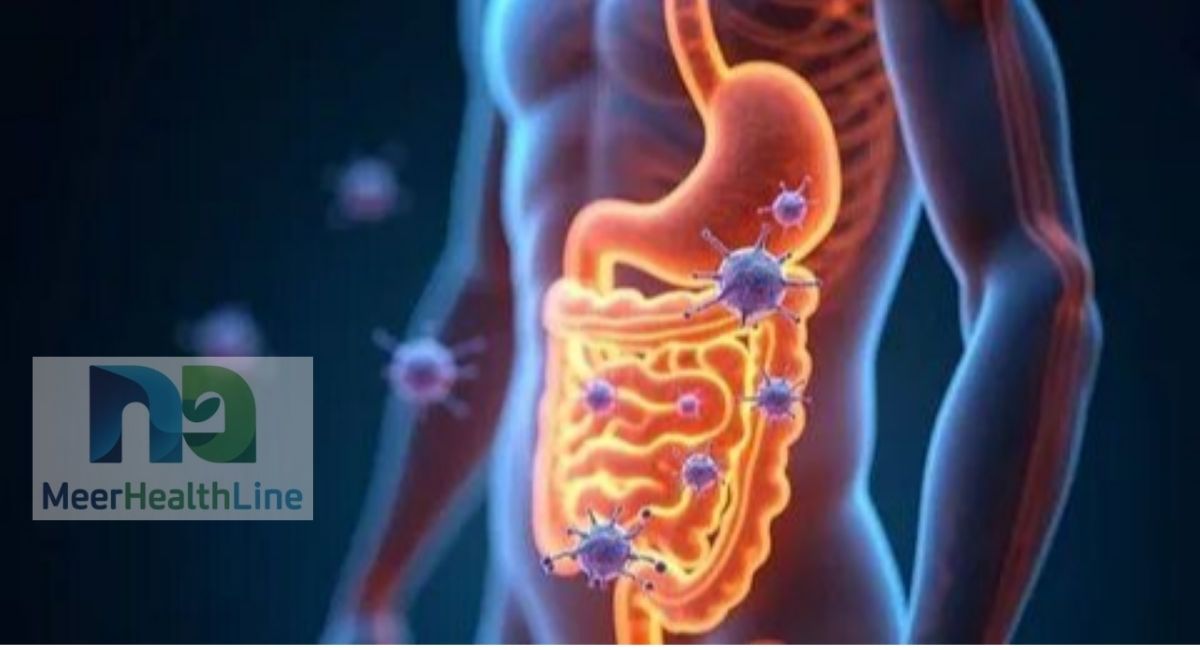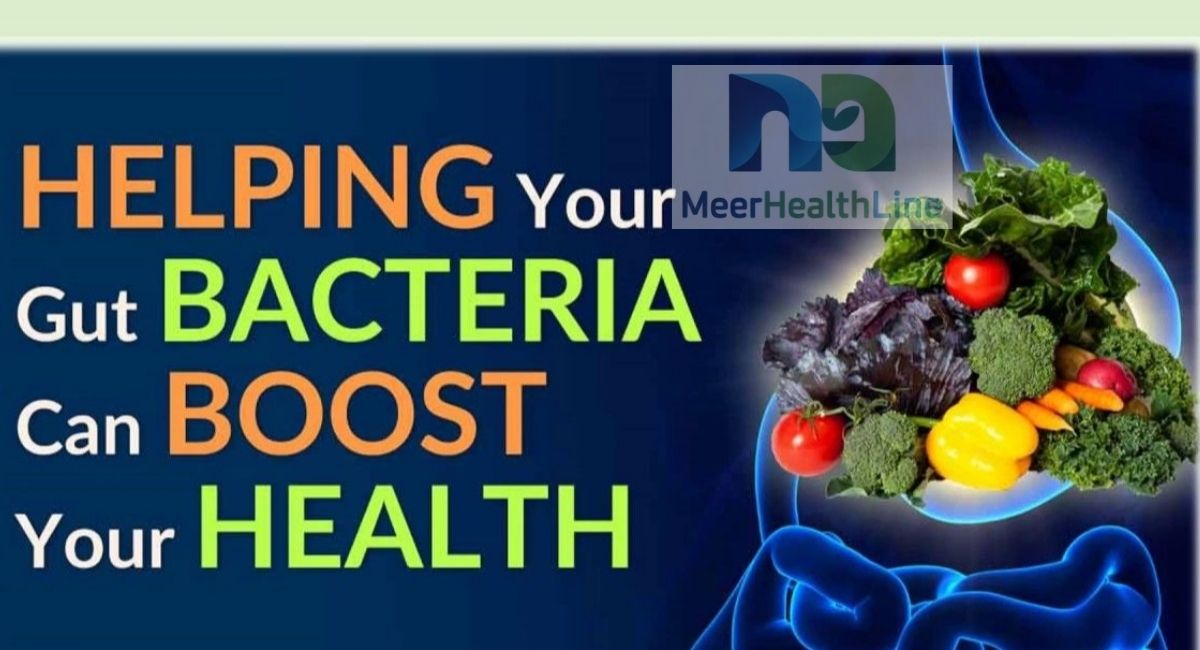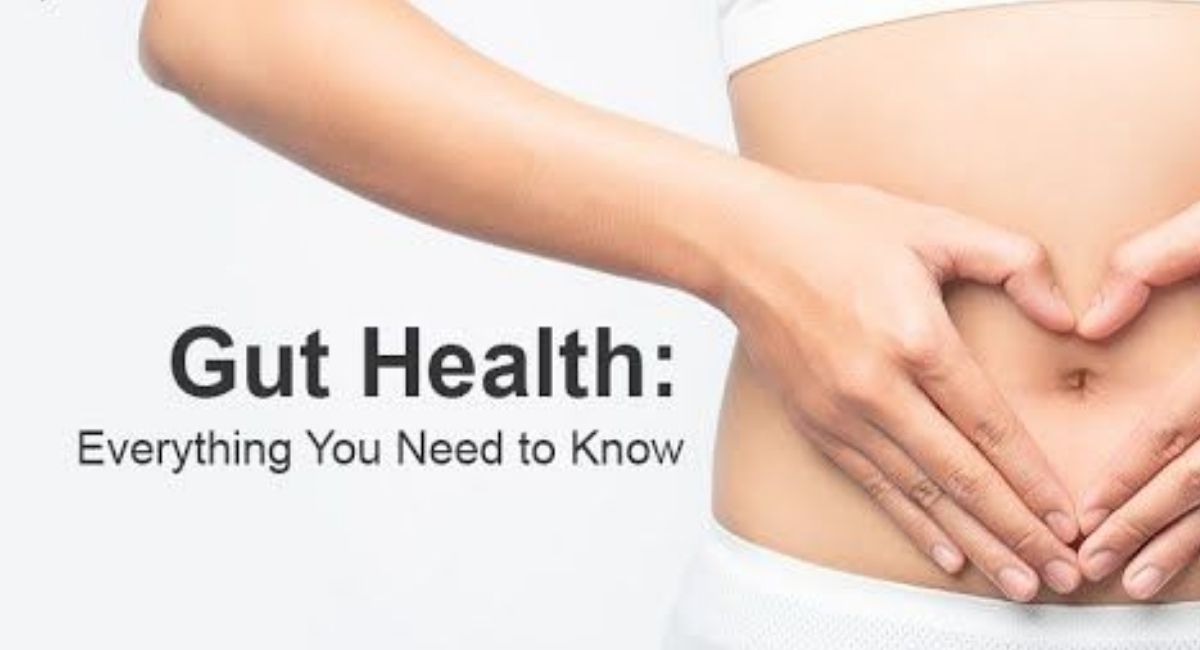Introduction:
When people talk about health, typically they tend to focus on workouts or the clean eating, yet it all begins deep within– within your gut. Down there live trillions of microbes that quietly come to define your digestion, immunity, and even your mood. When balance is lost in the gut, your entire body will know it. Think about daily bloating, exhaustion all the time-the symptoms continue. The red flags are oblivious to turn a blind eye to them, but dangerous to disregard them. In this article, I will unzip the importance of gut health on your whole life and what small things you can do to heal it and keep it healthy. Shall we?
Hmm, so we can talk informally about
why we should care about our gut now, right? More than just push food along, your gut is rather the protagonist in your entire-body narrative. Because it is a powerhouse that controls your immune system, your endocrine system, and your nervous system, people call it the second brain. The bottom line is, you must pay attention to your gut, as far as healthy living is concerned.

1.Connection of Gut and the Immune System
Here is what you do not know single-handedly: a half of your immune system spends time in your guts. The trillions of bacteria and viruses and fungi in your micro biome assist your body in tracking and combat evil intruders. A happy stomach makes your immune system work like clockwork. However, when your gut is not feeling too well, then chronic inflammation may develop and compromise your immune defenses.
2. Mental Well-Being and Gut Health
The brain and gut are in direct communication via the gut-brain axis. Such communication is with nerves, hormones and even gut bacteria. Proper gut will help regulate mood, decrease anxiety and enhance concentration. As a matter of fact, there are gut bacteria strains which have been known to affect the production of serotonin, which is commonly associated with happiness.
3. And your gut is the hub
Healthy living should be good gut. It absorbs the vitamins, minerals and antioxidants you require in your food. It can absorb those nutrients any less than best when it is not feeling good and this leaves your immune system weak, your energy lagging, and bouncing back after being ill much harder.
4. Weight Management and Calories
You likely already understand that those intestinal flora are tiny hard workers who go to work with you day and night. What do you know, they influence how your body processes fat, maintains consistent levels of blood sugar and whether you feel full or not. When those gut microbes get a pinch out of whack, it may begin piling the pounds on you, increasing insulin resistance, and having your metabolic rate grind to a halt.
5. Protection from Illness
What better than a garrulous easy-going update on the latest stomach situation? The gut is literally the control room of the entire body, and when it is out of balance, trouble is sure to follow.
Consider your gut like a canvas:
the richer and more diverse the colors, or in other words, the bacteria, the better; the duller and starker, the more danger is. An unhealthy gut has been associated to chronic conditions such as type 2 diabetes, obesity problems, heart diseases, irritable bowel syndrome (IBS) and even certain cancers. Maintain that canvas full of lots of colours and you will increase your chances of getting out of these problems.
Concluding
Your gut does not belong to your digestive system; it is a foundation of the entire state of your well-being. Its care can help with not only immunity but also the mood, energy, and prevention of diseases. Part 2 addresses the question of how to tell that your gut is in trouble.

3. Indicators of an Unhealthy Gut
Your belly lets you know when something is not right; and this is not just when your digestive system is not happy. Looking out to identify these signs early can aid in the prevention of future health complications. The following are the most prevalent signs of an imbalanced gut:
1.Digestive Issues
When your gut is a disaster the same danger systems go off immediately: bloating, gas, constipation, diarrhea, or heartburn. That would be your body telling you to check out your microbial crew because something is not right. When the issue persists, it might be irritable bowel syndrome (IBS).
2. Changes in weight that occur unintentionally.
Drastic weight loss or gain with no apparent cause can be attributed to the health of the gut. An unhealthy stomach may limit the potential of your body to assimilate nutrients, control sugar in blood, or put on fat, and all of this affects your weight.
3. Constant tiredness or Inability to sleep
Are you feeling exhausted all the time or agonizing over sleep? Your gut may have something to do with it. One of those neurotransmitters that regulate sleep is serotonin, made in the gut. Imbalance of the gut can contribute to sleep or overall fatigue even after sleeping.

4. Skin Issues
Diseases such as eczema, acne, or rosacea can be connected with GI inflammations. Leaky gut, when the lining of the intestines is damaged, lets toxins into the bloodstream, which induces a skin flare-up.
5. Regular Disease or Low Immunity
A lot of your immune system is in your gut and because of this it could happen that you are always getting infections or colds or even having a slow healing process which means that your bacteria are not working hard to protect your body.
6. Food Intolerances
Consuming the same stuff over and over and one day when you eat it again later you get diarrhea, stomach crups, gas or even nausea? You might be experiencing food allergies. Put briefly, there appears to be something a little bit wrong with the microorganism hanging out in your bowel, and this slight derailment has an effect on how your food would be broken down.
7. Autoimmune Conditions
Unhealthy guts can become inflammatory systemic and interfere with immune control. This may cause auto immune diseases in which the body begins to attack itself e.g. rheumatoid arthritis or Hashimoto thyroiditis.
8. Sugar Cravings
A refined sugar diet is capable of damaging the intestinal lining and promoting the proliferation of bad bacteria. This further messes with sugar cravings that leave you in a vicious cycle simply damaging your gut even further.
Where you have some of these symptoms, it might be high time to evaluate your gut health. In the following section, you will be taken through a few feasible steps on how you can naturally repair and enhance your gut functioning.

Your gut is not only about your nutrition.
Your daily patterns, your mood and the way you manage your life all dictate the degree to which your digestive system has to work. The following four lifestyle factors affect the greatest:
- Stress. Being dialled-up causes your body to release stress hormones which can disrupt the good bacteria in your gut. Sustained stress pours water in the mug, and it requires some time to recover.
- Sleep. And when you are not having sufficient shut-eye, your digestive system is not reset. Shoot to Hit seven to nine every night.
- Exercise. Not only does movement make your body feel more toned, it also keeps your gut motility, which is basically a beat in which food continues through your body, on schedule.
- Relaxation. Even when it is meditation or some degree of mindfulness or simply chill with yourself, allow yourself proper downtime so that the gut can relax and heal itself.
- Hydration and Diet
Consider food as gasoline, nothing will work without it. The same goes for the trillions of bacteria that live in your gut. The same way you hoard high-quality fuel, they need fiber bulky, plant-based, and colorful foods. Feed them on highly processed foods, sweetened treats, secret ingredients, and you are making them consume diesel.This is true as well of hydration: water lubricates the digestive process, fortifies the gut lining and moves food through your bowels with nary a hitch.
2.Stress is a belly-ache
Chronic stress plays havoc with your gut in a variety of ways. It disrupts the balance of intestinal microorganisms, revs up intestinal permeability otherwise known as intestinal holes, and slows down digestion. The gut-brain connection is also pulled by stress and makes you feel nauseated, cramps or unusual appetite. Being aware, breathing out, and the stress-relieving mild hobbies are the main ingredients to keep your gastrointestinal tract at equilibrium.
3.Sleep Quality
Make your gut well behaved? You then have to sleep at a regular time. Your inner clock, the one you live by, the one that tells you when to wake up and to get stuff done is disrupted by the artificial day-versus-night time telling, which in turn disorients your guts bacteria, similarly to how your guts are being thrown into disarray when your clock has been turned on its end. Neither of them is set in the right position, leading to inflammation and increasing the likelihood of your falling ill. At least 79 hours in 24 and maintain your wake up time maintainable, you are top of your game concerning your gut.
4.Physical Activity
Whenever you step into the gym or tie up your shoelaces in preparation to sweat it out on a run, your heart and your body muscles get all the attention, but your belly is getting equally benefited. Exercise exercises your digestive system ensuring it does not go stagnant, increases the number of microscopic creatures that make their homes there, and reduces inflammation without the side effects that other anti-inflammatory agents like aspirin and ibuprofen provide. Aim to do two hours of moderate, aerobic exercise a week, like walking, swimming or biking, as well as a little weight training and you will not only feel a significant difference in the whole-body health of your gut, you’ll see the difference on your scale too.
5. Use of alcohol and Tobacco
Those bottle-popping and cigarette-puffing nights out are not just a bummer during the magnified hours: they pound your gut defense system. Excessive consumption of alcohol and nicotine eats up the lining inside the intestine, deprives up the good assortment of microorganisms, and allows harmful ones to enter the scene. In the long term, that translates to inflammation, worse digestive processes, and increased susceptibility to the development of gastrointestinal illnesses.
6. Medication Use
Your gut microbiome can also be thrown out of balance by frequent or extensive use of some medications, frequently antibiotics and antacids, and also NSAIDs (such as ibuprofen). Antibiotics kill both good and bad bacteria, so it is necessary to get the gut health back as soon as any treatment cycle stops.
The final word:
Gut health is massively dependent on your everyday decisions. Establishing a healthy personal life, full of clean food, effective application of stress, sport activity, good rest and reasonable consumption of medications, forms an impenetrable barrier towards healthy gut in the long run. Next we are going to get into some detailed dietary strategies that will help maintain a healthy and diverse microbiome in your gut.

5. Creating the Gut-Friendly Diet
One of the most influential tools to develop your gut health is what you consume in the form of food. Gut-friendly diet stimulates the development of friendly bacteria, digestive processes, and inflammation. The following is how you can construct an inside-out nourishing diet:
1.High-Fiber Diet
A good intestinal flora does not need much food to thrive it is the fiber that drives it. When that steady flow finishes off that satisfied gut, it goes on to generate short-chain fatty acids that strengthens the lining of the gut and mellows out inflammation. And, wear the best:
- legumes, vegetables, fruits, nuts and seeds whole grains.
Don t start on loads of fiber though, just increase it a bit at a time or you will be feeling bloated or gassy.
2.Mix it Up On Your Plate
Plant food sources provide varied types of fibers and nutrients to feed various gut bacteria.
• Goal: Consumer 30 varieties of plant food in a week.
• Included: Wide range of vegetables, fruits, herbs and spices, legumes and whole grains.
3.Fermented foods
- Fermented foods contains probiotics as beneficial bacteria that improve good flora and digestion.
- Examples: yogurt with live cultures, kefir, sauerkraut, kimchi, miso, Kombucha and temper.
- Tip: To allow your gut to get used to the foods, advise your starter to eat small levels when you first start consuming fermented food.
4. Eat foods rich in Polyphenols
Plant chemicals, referred to as polyphenols, promote good intestinal bacteria and reduce inflammation.
- Sources: These include green tea, dark chocolate, flaxseed, berries, Red wine (moderate), olives and vegetables (artichokes).
5. Stay Hydrated
H2O is essential to the passage of food in the GI tract, the functional state of the intestinal bulwark.
Recommendation: Drink lots of water. If you desire to be different, then herbal teas and water infusions will be excellent choices.
6. Restrict Ultra-Processed Food
Foods that are highly processed may have additives, artificial sweeteners and other poor quality fats that may destroy the gut bacteria and cause inflammation.
- What to avoid or limit: Pestering snacks, process cell snacks, fast food, and soft drinks.
7.Slow and Mindful
Eating When you excessively indulge in highly processed foods, they are usually accompanied by more additives, artificial sugars, and other harmful fats (all of which can disturb your intestinal microbiome and worsen your level of inflammation).
Thus, stay away (or, at least, limit it) with pestering snacks, process-cell snacks, fast food and soft drinks.
8. Collagen-Boosting Foods
Collagen will seal up the lining of your gut and prevent all those leaks that are so incredibly annoying, as well as prevent any drama of the digestive type. Fill your table with pop bone broth, fish skin, chicken skin, eggs and vitamin C-filled munchies (think citrus fruits and leafy vegetables) to fire up your own natural collagen production.
9. Before you think of Prebiotic Foods
Prebiotics are forms of fiber that feed your good bacteria. Examples: onions, garlic, leeks, asparagus, bananas and oats.
- Note: These may be particularly helpful following antibaecter administration, or healing of the gut.
Each time you consume foods that are beneficial to your gut, you develop a healthy microbiome, which helps you have immunity, digestion, a healthy mind, and body. We will discuss the impacts on gut health at various stages of life as well as how we can support them in the following section.
6. Gut Health and Stages of Life
Your gut microbiome changes during your life time-birth to the old age. Each phase of life is unique and offers its challenges and possibilities of aiding the health of gut. Knowing about those changes will help you take your wise decisions to care of your digestive system regardless of the age.
Infancy and Lactation
- Gut health starts before we are born. The initiation of the microbiome in a baby begins in the womb and it highly depends on the mode of birth and the feeding practices.
- Delivery by vagina vs surgery: when a child slides through the birth canal it absorbs the healthy bacteria that reside there. With a C-section, skipped is that, so children lack some of that early inoculation of bacteria.
- Breastfeeding: Breast milk is packed full of prebiotics (in other words, human milk oligosaccharides) as well as live bacteria to colonize the infant intestine.
- Moving to solid foods: As a child shifts out of consumption of breast milk and onto fiber-filled vegetables and fruits, the number of various kinds of bacteria in the intestine surges.

2.Birth Modes Feeding
Here is the thing: your intestinal adventure begins long before you come out. Courtesy of your mommy womb, those initial microbe appear long before you get to know the world. And the start-up line-up varies by how you come and what your first meal plan will be.
- Vaginal birth: Once you strike the birth canal, your small-belly will receive a mouthful of mommy-microbes and they may define the difference in your microbiome.
- C-section: You may not escape the birth canal and have a reduced microbial headstart.
- Breastmilk: Yep, breast milk. Teeming with prebiotics (i.e. human milk oligosaccharides) and live bacteria, essentially the same concept, but breast milk inoculates your intestines with good bacteria and actually forms your microbiome.
- Liquids: Until you begin teething and weaning, liquids serve as the first foods you consume, so mainly water but also breast milk or formula will expand the microbial diversity in your gut given that it is easily digestible.
3.Adulthood
A lifestyle habit is a major determinant of gut health in adulthood. Digestive problems in most adults are caused by poor eating habits, stress, or drugs.
• Stress and Work: Another factor that can disrupt the gut-brain connection is overtime and over-stress, leading to gastrointestinal disease.
• Diet and Lifestyle: The microbiome can be destroyed by foods containing excessive convenience food, alcohol, and aberrant meals.
• Hormonal Flux: Pregnancy, menstruation, hormonal shifting can influence the functionality of the bowel and the bacterial composition.
• What helps: Various diet rich in fiber, exercise, stress reduction, fixed sleeping.
4. Pregnancy & Gut health
The maternal gut microbiome undergoes maternal shifts to accommodate the growing fetus and prepare the host to parturition.
- Microbial Compositional Alterations: The diversity of the gut decreases and unfavorable bacteria associated with nutrient breaking down diminish.
- Digestive Symptoms: The hormone fluctuations result in digestive discomfort when constipation and bloating occur; this can be alleviated by eating fibre and consuming a lot of water.
- Maternal Effects of Diet: The maternal diet affects her intestinal health and premature exposure of a baby to microbes.
- Attention: Eat whole food, try to apply prenatal probiotics as recommended, avoid accidental antibiotics.
As we age the microbiota in our gut
(Affectionately known as all the microbes that inhabit it) becomes more transient and this has the potential to cause problems in the digestive system and adversely affect our immune system.
- low Digestion: Digestion becomes slow because stomach acid and enzymes lack continuity and nutrients are not absorbed fully.
- Inflammation Risk: Add that to a creeping background inflammation, or “inflammation.” This is partly due to altered gut.
- Medication Side Effects: Elderly people tend to combine many medications, and they can arouse the micro biome. S0, What to do about it?
- Select high-fiber diet.
- Drink plenty of water
- Stay on the go.

Incorporate probiotic food or supplements.
The one-line answer is the gut adjusts with you. Helping it at all levels such as breastfeeding or childhood nutrition, balanced adult life, and conscious old age may be rewarding in terms of overall health. Next, we shall explore the world of probiotics, prebiotics, and how antibiotics may be making your gut scale tip.
Conclusion:
Your intestine is not only a digestive system, but also the basis of all your health. It is all about taking care of your gut, both an infant and a senior Imagine your intestines as the heart of your body: they are connected with your immune system, energy, mood and even your ability to keep on staying healthy. When thinking of all those trillions of microorganisms lining your gut makes you feel like cheering, (literally, moisture wanted), just keep life short and sweet: heaps of the high-fiber, mixed contents of your plate, no to stress when it attempts a crash landing, and a little move-your-body time each day. Wish to cure a digestive headache or simply be long-lasting fit? Begin at the gut-unless it is whole and healthy, nothing connected to health.Begin with tiny steps, be gradually steady, and follow your gut it will know the road.
Meta Description
Wanna know where to start with good health? The gut. The trillions of bacteria that compose your gut microbiota are all influenced by the food you eat, the way you live and even where you are in life.
Read for more about Health

Welcome to Meer Health line. I am Muhammad Naeem, an AI-Povered SEO, and Content writer with 4 years of experience.
I help website rank higher, grow traffic, and look amazing. My goal is to make SEO and web design simple and effective for everyone.
Let’s achieve more together!


2 thoughts on “Gut Health: Your Key to Total Wellness”